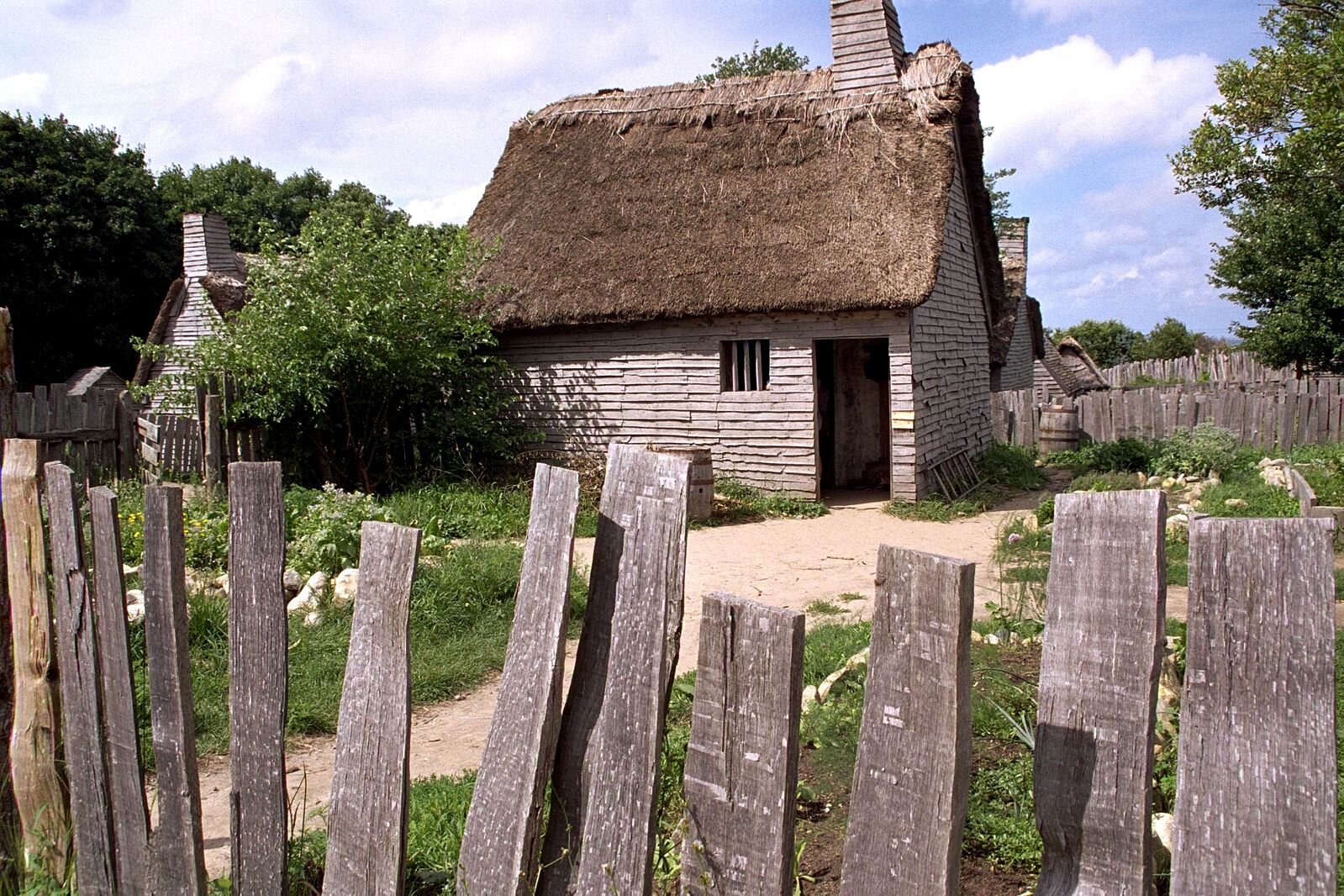Remembering 1620
Plymouth Plantation, Photo: Ben Franske, CC BY-SA 4.0 via Wikimedia Commons
At the historic site of Plymouth Plantation, a gravel path leads all visitors meandering through a recreation of the pre-contact land of Indigenous plants, and through a Wampanoag village with Wampanoag (and other Native Nations) staff. Walking through the native land unsettles the visitor’s expectation. Before arrival at the famed site of the Mayflower’s berth, the land and its Indigenous inhabitants tell a complex story of displacement and dispossession as well as resilience and survival.
2020 marks the 400th year anniversary of Plymouth Plantation. The Pilgrims aboard the Mayflower established the second permanent British colony in North America. Plymouth has long offered an occasion for feel-good national story telling. National myths of the late nineteenth and early twentieth centuries enshrined the Pilgrims as ideal founders: pious, hard working, and proto-democratic. But this is an origins story that we need to discard. It erases voices that do not fit and obscures the reality of America’s origins as multi-racial, spiritually diverse, and politically pluralistic, not white, predominantly male and Protestant. How might the 400th anniversary of Plymouth occasion a lasting reconfiguration of origins stories ?
This is the question I ask myself as I prepare to teach my college courses on American literary history. I consider the demographics of my students who are racially, ethnically, and socio-economically diverse. A good number are international. Several are first-or second-generation immigrants. They all want to understand the rise of the United States. How do I encompass the many different histories that have made the United States what it is today?
One solution is to replace the myth of Plymouth with a counter-myth. Take the New York Times 1619 project. Instead of the Pilgrims, American history begins with twenty enslaved Africans who berthed at Point Comfort Virginia in 1619. Counter-myths serve a useful function in highlighting histories that have too often been shamefully overlooked. But ultimately, counter-myths replicate the flaws of all origins myths. Rather than exposing truth, the counter-myth confirms that any case for singular national origins can only be made by distorting and erasing parts of the past.
The English slavers who took the Africans to Point Comfort in 1619 stole twenty enslaved people from a Portuguese ship, in transit from Angola to Mexico. They would have been slaves in South America and the Caribbean, but instead they became slaves in Virginia and Maryland. The enslavement of Africans should not be seen as the “origin” of the United States, either. The race to possess slave labor had been central to Portuguese and Spanish imperial policy for at least a hundred years prior to the arrival of enslaved Africans to Point Comfort .
Replacing Plymouth Rock in 1620 with Point Comfort in 1619 leaves out another vast part of America’s past. Both versions of America’s “origins” relegate Native Americans to the status of nameless victims of tragedy, captured in colonial wars, enslaved, and forcibly removed from their lands. Indigenous peoples across colonial North America resisted and continue to resist being erased by other people’s origin myths. Indigenous resistance helps us to rethink the concept of origins, and to forge new ways of understanding the identity of this nation and its future.
It is time that we discard singular origins come up with a new paradigm for national story-telling. Instead of harbors, dates, ships, and foreign founders, let’s begin with America’s original inhabitants.
What would it mean to consider the Pacific-west as a geography for reimagining American origins? What would happen if we reversed the course of western empire by retelling
the story of American beginnings from the perspective of the people who migrated across the Bering Strait and populated the Arctic, the very land on which our future depends today? What if we traced the survival of indigenous languages within an American lexicon, the basis of our national arts and letters?
The myths we tell as a nation, as a culture, as a myriad of people might be irrevocably unsettled. We might activate the full range of experiences, identities, thoughts, feelings, and memories that breathe life into the present. We might radically reorient the stories that might be told about America’s past.
